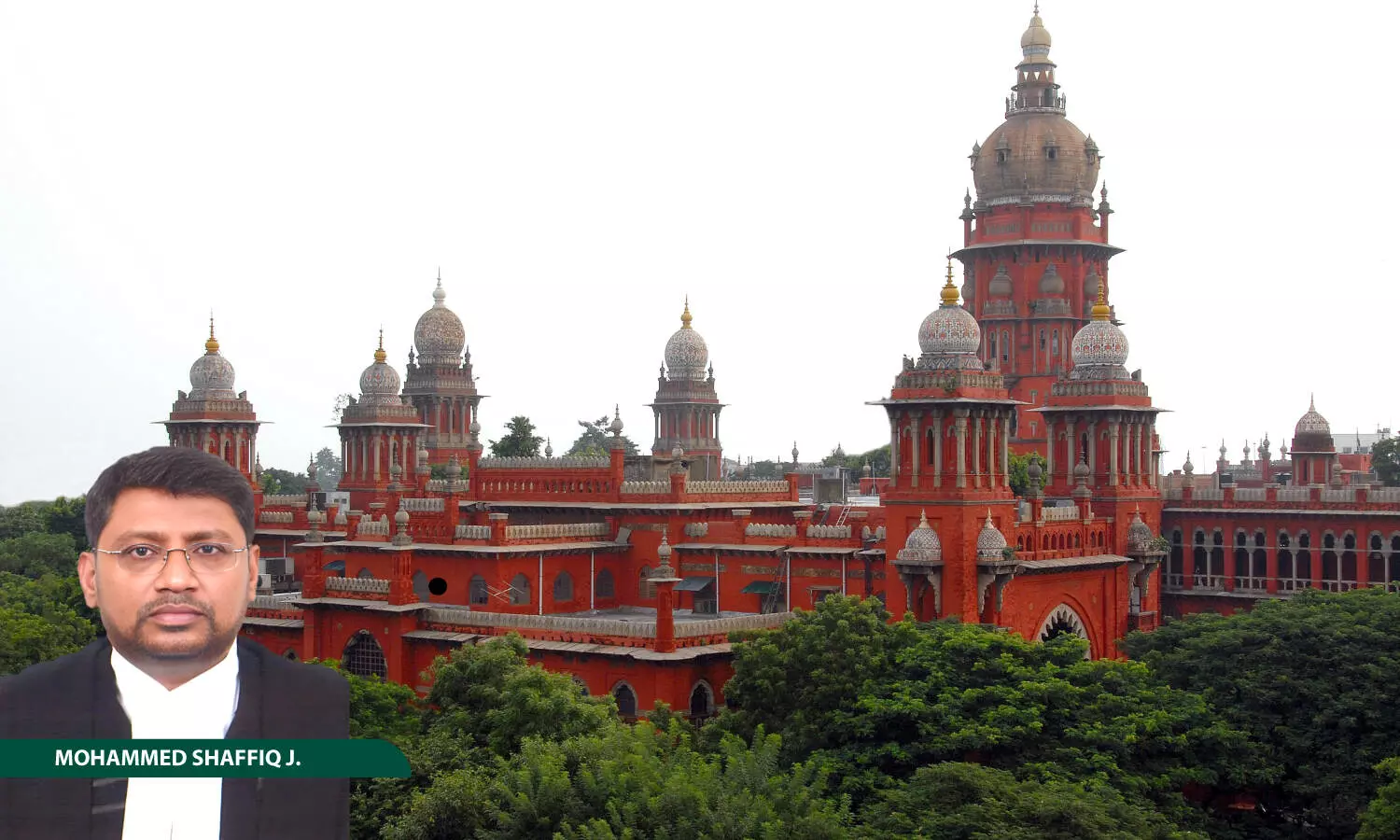
Service Of Notice Or Order By Making It Available In Common Portal Is Valid U/S 169 Of GST Act: Madras High Court
 |
|The Madras High Court observed that the common portal is a designated computer resource for both Department as well as taxable person.
The Madras High Court held that service of notice or order by making it available in the common portal is valid under Section 169 of the Goods and Services Tax Act, 2017 (GST Act).
The Court held thus in a batch of Writ Petitions out of which the leading one was filed by a firm namely M/s. Poomika Infra Developers.
A Single Bench of Justice Mohammed Shaffiq observed, “We have dealt with the question of validity of service inasmuch as service goes to the root of jurisdiction and if service is invalid the proceedings would be non est and the question of orders of adjudication being barred by limitation would arise. Service by making it available in the common portal is a valid mode of service in terms of section 169 of the GST Act. Service is complete when it enters the common portal i.e., when it is made available in the common portal.”
The Bench also observed that the common portal is a designated computer resource for both Department as well as taxable person inasmuch as the taxable person is given a unique login ID and password to enable them to have access to the portal and hence, the common portal would constitute a “designated computer resource” for the taxable person as well.
Advocate G. Natarajan appeared on behalf of the Petitioners while Additional Advocate General (AAG) Haja Nazirudeen appeared on behalf of the Respondents.
Brief Facts
The Petitioner in the lead case was engaged in providing works contract service primarily to the Central and State Government. It was registered under the GST Act and it filed statutory returns. Appropriate taxes were also duly discharged and it was assigned to Central jurisdiction. While so, the Petitioner’s place of business was visited by the GST Intelligence and their books were verified by the State Tax Officers (STOs). During the inspection, discrepancies were noticed relating to short payments of taxes for the period 2017-18 to 2022-23. An intimation was issued which contained allegations of discrepancies between Profit and Loss Account and GSTR 3B, GSTR 7 and GSTR 3B, Availment of ITC contrary to Section 16 of the Act.
The said intimation was uploaded in GST Common Portal which was followed by a show-cause notice (SCN). Thereafter, an Order was passed which was the subject matter of challenge in the Writ Petition. The challenge was on the premise that the Petitioner was not aware of the intimation in DRC-01A, SCN in DRC-01 and Order of adjudication in DRC-07, which were uploaded in the GST Common Portal. Petitioner was thus unable to participate in the adjudication/assessment proceedings. Petitioner challenged the Order of assessment, on the premise that the service of notice/order is improper and invalid.
Reasoning
The High Court in view of the above facts, noted, “… Section 13 of the IT Act, 2000, may have a bearing in determining the time and place of service under the GST regime. In terms of Section 13 of the IT Act, 2000, if the addressee i.e., taxable person in the present case had designated a computer resource, for the purpose of receiving electronic records, receipt occurs at the time when the electronic record enters the designated computer resource i.e., the common portal.”
The Court added that if the electronic record is sent to a computer resource other than the designated computer resource, receipt occurs when the electronic record is retrieved by the addressee.
“If the taxable person has not designated a computer resource, receipt would occur when the electronic record enters the computer resource of the addressee. Having found common portal to be a “designated computer resource” of the taxable person as well, receipt would occur when it enters the common portal i.e., when it is made available in the common portal, in terms of clause (a) to sub section (2) to section 13 of the Act”, it further said.
The Court, therefore, issued the following directions –
• The Petitioner shall deposit 25% of the disputed taxes as admitted by the counsel for the Petitioner and the Respondent, within a period of four weeks.
• If any amount has been recovered or paid out of the disputed taxes, including by way of pre-deposit in appeal, the same would be reduced/adjusted, from/towards the 25% of disputed taxes directed to be paid.
• The entire exercise of verification of payment, if any, intimation of the balance sums, if any, to be paid for compliance with the direction of payment of 25% of the disputed taxes, after deducting the sums already paid and payment by the Petitioner of the balance amount, if any, on intimation in compliance of the above direction, shall be completed within a period of four weeks.
• Failure to comply with the above condition viz., payment of 25% of disputed taxes within the stipulated period i.e., four weeks, shall result in restoration of the impugned Order.
• If there is any recovery by way of attachment of Bank account or garnishee proceedings, the same shall be lifted/withdrawn on complying with the above condition viz., payment of 25% of the disputed taxes.
• On complying with the above condition, the impugned Order of assessment shall be treated as show cause notice and the Petitioner shall submit its objections within a period of four (4) weeks along with supporting documents/material.
Accordingly, the High Court disposed of the Petitions and set aside the impugned Orders.
Cause Title- M/s. Poomika Infra Developers & Anr. v. M/s. MV Creations & Ors. (Case Number: WP Nos.33562 of 2024 and etc., batch)
Appearance:
Petitioners: Advocates G. Natarajan, S. Senthilnathan, and K. Chandrasekaran.
Respondents: AAG Haja Nazirudeen, Government Advocate V. Prashanth Kiran, and Special Government Pleader (SGP) G. Nanmaran.